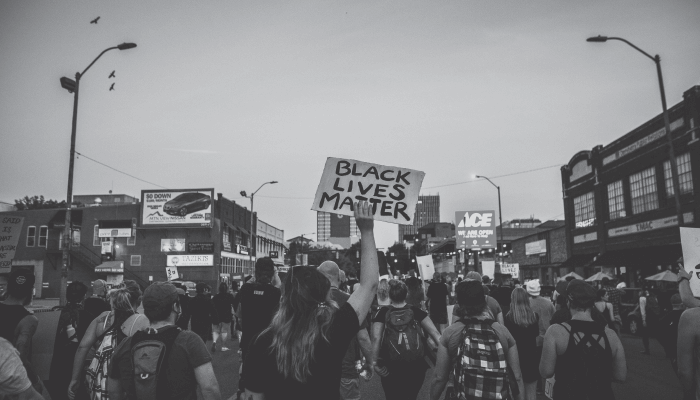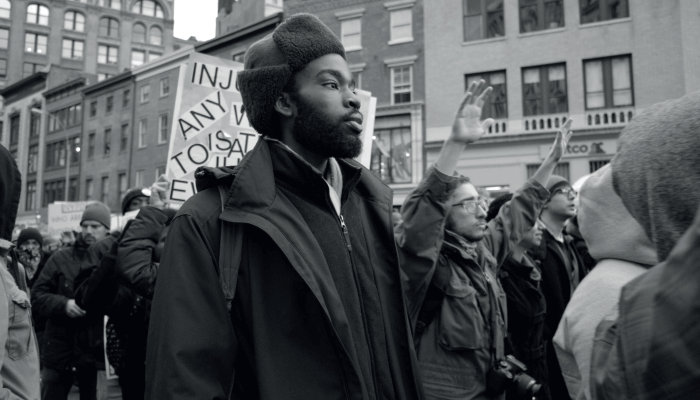
The death of George Floyd sparked mass protests across the world, not just to condemn acts of police brutality against the Black community, but also the systemic racism that underscores them – and they have not gone unnoticed by the ophthalmic community. The American Academy of Ophthalmology (AAO) released the following statement on June 1, 2020:
“The American Academy of Ophthalmology deplores the senseless death of George Floyd and others under similar circumstances. We also abhor their tragic sequelae – violence, injuries and loss of life. We know that our patients and colleagues share anger, sadness and frustration over these recent events.
The Academy is committed to inclusion, to the richness of a diverse society and to the principles of human dignity and societal equality.
The profession of ophthalmology and individual ophthalmologists are committed to providing compassionate, equitable and outstanding care for all patients and communities. We rededicate ourselves individually and collectively to that mission and to building a society of fairness, justice and opportunity for all. There is no place for racism.”
But while the movement has reignited conversations about inequality in medicine, it has also raised valid concerns about another issue: the tactics US police are employing to suppress protestors, namely the use of rubber bullets, tear gas, and pepper spray. Though rubber bullets may not be designed to kill, they are capable of blinding a person, with multiple protestors reporting open globe injuries, many requiring medical treatment and – in some severe cases – enucleation. Ophthalmologists across the US have condemned their use on social media, including glaucoma specialist Steve Gieser.
“Case #16
6/02/20, Providence RI
Anonymous
A 29-year-old man and his wife were driving when they came across a riot. His wife filmed multiple police chasing a man. In her video, an officer can be seen turning towards their car and then he points his gun directly at them and fires a projectile. The projectile goes through the open car window and hits the driver in the face. The wife took control of the car and drove to the hospital, where he is in critical condition with extensive facial injuries. His eye was enucleated.”
Credit: Steve Gieser's Instagram account (@scgieser)
Gieser is sharing the clinical and personal stories of individuals affected by tear gas, pepper spray, and rubber bullets on his Instagram account @scgieser in the hope of having the projectiles banned – and he is not alone. Other ophthalmologists, such as Ravi Goel and Andrea Tooley, have posted about the issue on social media, and the AAO has since released a statement warning against rubber bullets for crowd dispersion:
“In the past week, Americans engaged in peaceful protests have been blinded by the use of rubber bullets fired at the face.
While classified as non-lethal, they are not non-blinding. These life-altering eye injuries are a common result of urban warfare, rioting and crowd dispersion. We have seen it around the world, and we now see it in the United States.
Following numerous serious injuries in the past two weeks, the American Academy of Ophthalmology calls on domestic law enforcement officials to immediately end the use of rubber bullets to control or disperse crowds of protesters. The Academy asks physicians, public health officials and the public to condemn this practice.
Americans have the right to speak and congregate publicly and should be able to exercise that right without the fear of blindness. You shouldn’t have to choose between your vision and your voice.”
The AAO has also launched hashtag campaigns #NotOneMoreEye and #NoRubberBullets on social media, often shared with visual guides for protestors on basic eye care in the face of police aggression.
Dr Glaucomflecken, the anonymous ophthalmologist who uses Twitter to increase awareness of ocular health (@DGlaucomflecken), has recently shared advice on what to do in the event of exposure to pepper spray.
What is your opinion on the use of rubber bullets, tear gas, and pepper spray on protestors – and equality in ophthalmology more generally? We’d love to hear your thoughts.

References
- AAO (2020). Available at: https://bit.ly/3hmrI73.
